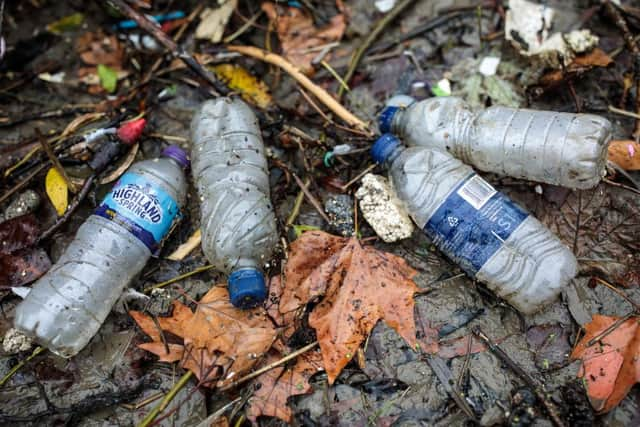‘Historic’ environmental treaty to be drawn up in bid to tackle world’s plastic pollution crisis
The announcement comes after nearly 200 countries agreed to start negotiations on an international agreement to address the “plastic crisis" during the latest United Nations Environment Assembly (UNEA), being held in Kenya
The move has been hailed as “historic" and "as significant as the Paris Agreement".
Advertisement
Hide AdAdvertisement
Hide AdIt is seen as one of the world's most ambitious environmental actions since the 1989 Montreal Protocol, which phased out ozone-damaging substances.


The terms of the treaty are still to be negotiated but could include measures that promote sustainable production and use of plastics, as well as more ecologically sound waste management.
It is also hoped it will help tackle marine plastic pollution, one of the biggest global environmental challenges.
It’s predicted that unless action is taken there will be a threefold increase in the amount of plastic flowing into the ocean between 2016 and 2040.
As much as 12 million tonnes of discarded plastic enters seas worldwide each year, contributing to a growing mountain of the manmade waste.
Plastic is not biodegradable and remains in the environment for hundreds or thousands of years.
There is mounting concern over its impact on the environment and human health.
It’s thought to kill around 100,000 marine mammals and one million seabirds annually, and enters the food chain.
Advertisement
Hide AdAdvertisement
Hide AdLord Zac Goldsmith, the UK minister for international environment, was involved in the talks.
He said: “This agreement by governments at UNEA is truly historic, and I’m so proud that the UK co-sponsored the proposals and helped get them over the line.
“In the space of just one human lifetime we have caused unimaginable damage to the global environment, choking every single part of the global ocean with plastic pollution.
“And although there is much to be done now to turn it into an ambitious and far-reaching treaty, we can now begin to close this ugly chapter.
“I am so grateful to UK negotiators for their fantastic work securing agreement this week.”Sian Sutherland, co-founder of campaign group A Plastic Planet, said: "This is a huge opportunity for governments around the world to turn the tide on plastic and show industry that simply pumping out plastic with no responsibility for the devastation it causes is no longer acceptable.”
A message from the Editor:
Thank you for reading this article. We’re more reliant on your support than ever as the shift in consumer habits brought about by coronavirus impacts our advertisers.
If you haven’t already, please consider supporting our trusted, fact-checked journalism by taking out a digital subscription.
Comments
Want to join the conversation? Please or to comment on this article.
